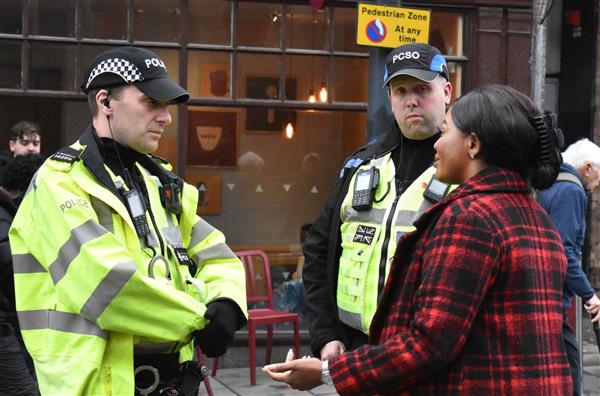|
||||
|
||||
|
|
||||
|
Police and Crime Commissioner Nicolle Ndiweni-Roberts has praised officers for saving lives by effective use of the anti-overdose drug naloxone.
The Derbyshire PCC said officers had administered naloxone – a medication that temporarily reverses the effects of an overdose from heroin and other opiates or opioids – 20 times since May 2024, saving lives in the process.
Police officers, by the very nature of their job, are often the first on the scene of an overdose. The PCC was keen to recognise their lifesaving work which has also helped to steer drug users benefitting from the medication to treatment and rehabilitation to tackle their dependency in the long-term.
Currently, 1,300 officers have been trained to administer the drug in Derbyshire while more than 900 officers in frontline roles have volunteered to carry it. In March this year, naloxone was administered after the discovery of an unconscious man in a city centre street. He appeared to be suffering from an opioid overdose.
Officers swiftly administered three doses of naloxone which brought him round and saved his life. Their actions were later praised by attending paramedics.
The man was taken to hospital where opioids were found in his blood, and he remained in hospital for seven days. During a follow-up visit by police, the individual was referred to drug and alcohol treatment.
In another case, a woman received naloxone on four separate occasions after officers suspected she had taken an overdose each time she was located.
Following each administration, referrals were made into treatment, with the force working together with social care and East Midlands Ambulance Service (EMAS) to arrange effective wraparound care and support by the most appropriate agency.
The individual has now been identified as a woman at risk due to domestic problems and despite an initial reluctance, she is now engaging well, having accepted a referral for rehabilitation thanks to the persistence of the local drugs partnership.
Drugs and substance misuse is one of six key pillars of the PCC’s Police and Crime Plan that represent the issues that residents and businesses have consistently told her are most important.
Nicolle Ndiweni-Roberts said: “Every drug-related death is tragic and, in most cases, preventable. The confident and effective use of naloxone across Derbyshire by our officers is without a doubt saving lives. Officers deserve full credit for their critical thinking and swift action in what are challenging and urgent circumstances which is helping to reduce drug deaths in our communities.
“These cases highlight how well the force is working to deliver a coordinated, person-centred approach that goes far beyond the immediate application of this drug. For those who receive naloxone, it is the start of a very long journey to rehabilitation but reassuringly one that they will not take alone. I’m impressed at the level of commitment between the force and its partners to make a meaningful impact on people’s lives, not just in the height of an emergency.
“Partnership work is at the centre of my Police and Crime Plan, and I am truly proud of the progress we are making to tackle drug dealing, drug related crime and substance misuse, addiction and dependency holistically to make our communities stronger and more resilient.” | ||||
Reply to this message | ||||
|
||||
|
|
||||
|
||||
|
|
||||

|
|






